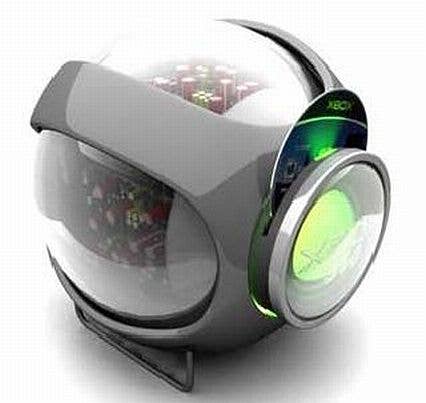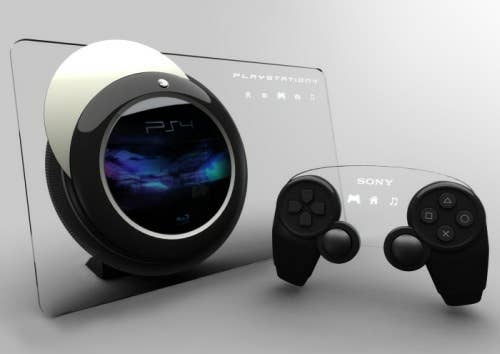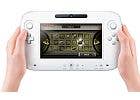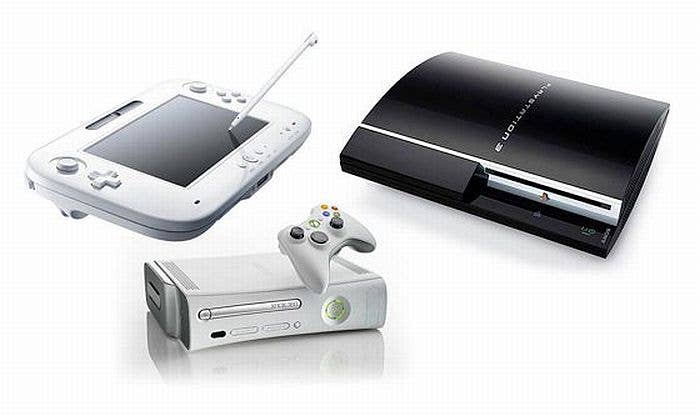Console War 2012: Status Of Forces
A combat report on the marketing battle of Wii U vs. PS3 vs. Xbox 360
The tsunami of hype from E3 has receded, leaving behind a confused landscape of glitzy trailers, hyperbolic press releases and rampant uncertainty. Nintendo formally introduced the Wii U, while Microsoft and Sony avoided any hint of a new console in their future. Despite the lack of official information, the shape of the marketing battle for this holiday and beyond into 2013 is already starting to emerge. The Console War is entering a new phase, with even more combatants and greater risks than ever before. Let's look at the warriors and where they stand.
Microsoft: The current leader tries to hold on
Microsoft's E3 presentation was centered on their upcoming holiday titles, particularly Halo 4. The interesting sidelight was SmartGlass, their technology for connecting smartphones and tablets to the Xbox. The shadow of the next-generation Xbox loomed large, though it was never even hinted at. Microsoft, of course, kept the focus on all the great things coming up for the Xbox. The excitement didn't exactly reach a fever pitch when Internet Explorer for Xbox was announced, but everything else was well-received.

We may have some insights into Microsoft's plan for the future due to the leaked document that purports to discuss a roadmap for the Xbox platform. Whether or not that document is real, its general direction matches the indicators we get from other Microsoft moves: The Microsoft Surface tablets; the investment in Nook; Windows Phone 8 and Windows 8; Kinect for Windows; new entertainment services for Xbox. Clearly Microsoft sees that the battle for the living room is on, and it's more than just Sony and Nintendo they have to worry about; it's Apple, Google, Samsung, LG and others.
Microsoft has been moving the Xbox 360 in the direction of a general entertainment hub for a while now. There are more and more TV and movie services, music streaming, pay-per-view, and other offerings for the Xbox. Non-game uses now account for more console time than gaming, and that's true across all consoles. Netflix has announced that June saw 1 billion hours of streamed video through their site.
Microsoft is probably looking at holiday 2013 for a new console launch. It may be more than one version, with perhaps a subsidy from a cable company or a payment-over-time plan as an option. The technical goal will probably be to get 60 fps games at 1080p resolution, with reasonable storage options for downloaded content. This may require expensive hardware, but Microsoft is probably prepared once again to lose hundreds of dollars on each unit if needed to get the price down far enough to drive rapid adoption.
"Maybe we'll see an end to Microsoft Points, which can join Nintendo's Friend Codes in a special circle of hell hosted by Clippy"
What can we expect from the next Xbox? A full array of connectivity with smartphones and tablets, an extensive set of media options for video and music, technical advances in Kinect to make voice and gesture control significantly better are all likely. Perhaps even DVR capability so you can record video, which would add great value. Maybe we'll see an end to Microsoft Points, which can join Nintendo's Friend Codes in a special circle of hell hosted by Clippy.
The most pressing concern for Microsoft is that they face a competitive landscape like never before in the living room. No one knows what Apple may do or when they may do it, but that Apple TV is already lurking out there in 5 million homes awaiting an App Store. Google is still trying to gain a place in the living room, as the Nexus Q shows. Microsoft also wants to bring some of the Xbox Live success to its other platform; it sees how the success of Apple's iPhone has helped sales of Macintosh computers. A successful ecosystem of content and hardware in all areas (consoles, smartphones, tablets, and PCs) is much greater than the sum of its parts. Microsoft is looking to construct that, and the next Xbox is a key part of that puzzle.
Sony: #2 is trying harder
Sony had a slick presentation for E3, which focused (like Microsoft) primarily on the great software releases they have coming up for the holidays. (With a painfully dull detour into 'Wonderbook'-land, the augmented-reality books that drained all the excitement out of the crowd, until finally Sony got back to some crowd-pleasing graphic violence.) Oddly, the PS Vita got only a fairly brief mention; most of the time was spent on the PS3. The most interesting new Sony technology was not talked about at E3, but has now become public: The acquisition of Gaikai.

Gaikai's streaming technology can spread Sony's gaming properties to a wide array of hardware, extending their reach and perhaps offering some exciting new possibilities. Sony will even be able to bring many of Gaikai's capabilities to market before the advent of the PS4, whenever that arrives - which is probably holiday 2013.
Sony's ambition is similar to Microsoft's: gain control of the living room. Sony would love to see its TV line become a profit center instead of a huge albatross. (Sony's recently announced deal with Panasonic to create reasonably priced OLED TVsreasonably priced OLED TVs for late 2013 is a step in this direction.) Sony recently bought out Ercisson and now completely controls its smartphone destiny. Sony's Android tablets are in the market but not attracting much attention. Meanwhile, Sony still has an impressive music and movie business, with properties just waiting to be sent to an array of Sony and other devices.
"Will Sony let Microsoft get to market before them?"
Sony's plan even looks like Microsoft's: Bring out devices in all major areas (smartphones, tablets, consoles, TVs and more) and bring a broad range of content to those devices. The Gaikai acquisition brings them some interesting potential, but we still need to see a PS4. Will Sony let Microsoft get to market before them? Maybe, but there would be some market share benefits to Sony if they could beat Microsoft to the punch. Consumer dollars are harder to come by these days, and most would only consider buying one console costing hundreds of dollars. Once they've got it, other new consoles won't get their dollars.
Nintendo: The once and future king?
Nintendo's E3 performance has been widely panned, and they've spent the time since with various execs trying to generate some of the excitement that was lacking at E3. Nintendo showed a number of titles coming for the Wii U, with Pikmin 3 as the high point; sadly, that was the beginning of the presentation, and everything else was less impressive. Nintendo had a half hour of news crammed into an hour, given that they wanted to avoid specifics about the Wii U hardware. They avoided the specifics so well that both Jimmy Fallon and CNN thought Nintendo was introducing a new Wii peripheral instead of a whole new console.

The unsaid story of Nintendo's Wii U introduction is that the hardware is launching well in advance of the software. NintendoLand, while appealing, is certainly not the high-def Zelda title fans were hoping that the demo from last year presaged. Super Mario is not a launch title, and other popular Nintendo franchises were relegated to a NintendoLand appearance. Nintendo is perfectly aware that gotta-have-it software is what sells hardware, but those titles take time to create. Nintendo cannot afford to wait any longer to introduce a new console, as Wii sales continue to decline. They seem to be calculating, not without reason, that there are enough hardcore Nintendo fans to sell a lot of new hardware merely on the promise of new software.
Many aspects of the Wii U launch remain unknown or unsaid. Nintendo hasn't announced a price yet, perhaps evaluating reactions and hoping for a break on exchange rates. NintendoLand may be bundled in with the Wii U, or it may not. Will the Gamepad be the only controller in the box with the Wii U? We don't know. Will there be some digital content included as well? No one knows. We don't even know the technical specs of the machine, or the amount of storage for games that it comes with.
"Nintendo may hit the 2013 holidays with a console that, while it may be less powerful than the competition, is half the price and has a unique controller"
Still, it's interesting to note how the console war may shape up for the 2013 holiday. By that time the Wii U may be at around $200 retail, and if the next Xbox and the PS4 launch in that time frame they may well be twice the cost. Nintendo may hit the 2013 holidays with a console that, while it may be less powerful than the competition, is half the price and has a unique controller. That is exactly where they were at with the Wii against the Xbox 360 and the PS3 at their launch, and Nintendo won that battle handily. Remember, too, that by the 2013 holiday Nintendo should have an array of titles featuring their core characters in compelling HD gameplay, and there should be plenty of software from third parties as well.
What lies ahead
Microsoft, Sony and Nintendo would all dearly love to just keep selling the current generation of consoles far into the foreseeable future. The hardware is finally at a point where it's sold at a profit, and the software generates nice profits - especially the $7 or $8 licensing fee each manufacturer has to pony up for every retail sale, or the 30% take from all of the downloadable games and content. A new console means a loss on each unit sold, usually, and far fewer units of software sold to earn royalties on until the installed base gets large enough - which may take years.
Sadly, the declining sales of retail console games indicate that it's getting to that time when new consoles are needed in order to revive sales. What happens if you wait too long? Nintendo clearly illustrates this, as Wii sales in the US have dropped from about 7 million in 2010 to 4.5 million in 2011, and continue to decline. Wii software sales are down 50% or more, and with few major releases there's no reason to expect any change.
So the strategy has become clear for the rest of 2012: Microsoft and Sony will try to keep things going with their current consoles by delivering the best software they can, and making sure that they have a great value compared to Nintendo's Wii U. Nintendo is trying to generate excitement for the Wii U and have a successful launch, and trying get back to to the top of the sales charts where the Wii used to reign.
The big divide is really between the strategy shared by Microsoft and Sony with the strategy Nintendo is employing. Microsoft and Sony see their consoles as entertainment centers that occupy a vital role in selling other hardware and software. Nintendo sees the Wii U as a game machine, first and foremost, with a few other capabilities thrown in for luck. But that's just the hardware strategy; what about the software?
One of the key factors behind console success for the past decades has been getting third-party game publishers to invest in the platform, then reaping the royalties. That grand bargain is eroding currently, and it's looking very shaky indeed for the next generation. Previously in a console transition publishers would choose which new platform to invest in; usually the third-party publisher would pick one or maybe two. Last cycle, most publishers skipped the Wii and went for the PS3 and Xbox 360 initially, then had to scramble to readjust when the Wii proved to be far more popular.
Now publishers have more options. Yes, they can choose a next-gen console to support, but they can also choose mobile, social, free-to-play online, and just scads of DLC. Worse, next-gen development costs are going to be more expensive; perhaps as much as double current development budgets. Time to market also matters. One title might cost $20 or $30 million to $100 million for the biggest, and take 2 years to develop. For that resource, you could develop dozens of mobile titles or social games; if you get a breakout hit there with a new IP your return on investment could look great., as Epic has revealed. They made a far greater return on investment for Infinity Blade than on any console title they've ever done.
"Whoever wins the title of top-selling next-gen console may be getting a prize worth less than the last generation of consoles"
Sony and Microsoft are certainly backing that old model, but preparing for a changing marketplace by adopting new platforms (like smartphones and tablets) and new business models (like DLC and free-to-play). The big question is how much does Nintendo believe in the old model. With the Wii it seemed like Nintendo didn't really care that much; it's always been their desire to make money on the hardware, and then license revenue from third-parties is a bonus. While Nintendo is saying that third-party development is very important to it, at E3 Ubisoft was the only major publisher to wholeheartedly support the Wii U. Oh, Warner had a port of Arkham City, and EA let it be known that Mass Effect 3 would be ported, but only Ubisoft had an original Wii U title on display (as well as several others). Is Nintendo really trying hard for third-party support and publishers aren't that interested? Or is it that Nintendo is really looking to make the most money on software it creates?
All three manufacturers face price competition from increasingly powerful tablets, and possible Apple or Android games coming to TV sets. Nintendo will lay down the first marker this holiday with the Wii U price; no doubt Sony and Microsoft will adjust their pricing and software bundles for the PS3 and Xbox 360 if they think it necessary to respond to Nintendo's move.
Whoever wins the title of top-selling next-gen console may be getting a prize worth less than the last generation of consoles, as the number of AAA console titles continues to drop and increasing competition means less money for the traditional console business. Will Nintendo's game-centric strategy, with a less powerful console at a lower price, win out over Microsoft and Sony who are planning more power at a higher price for an all-around entertainment device? This is going to be a fascinating battle to watch, with the outcome by no means pre-determined.

